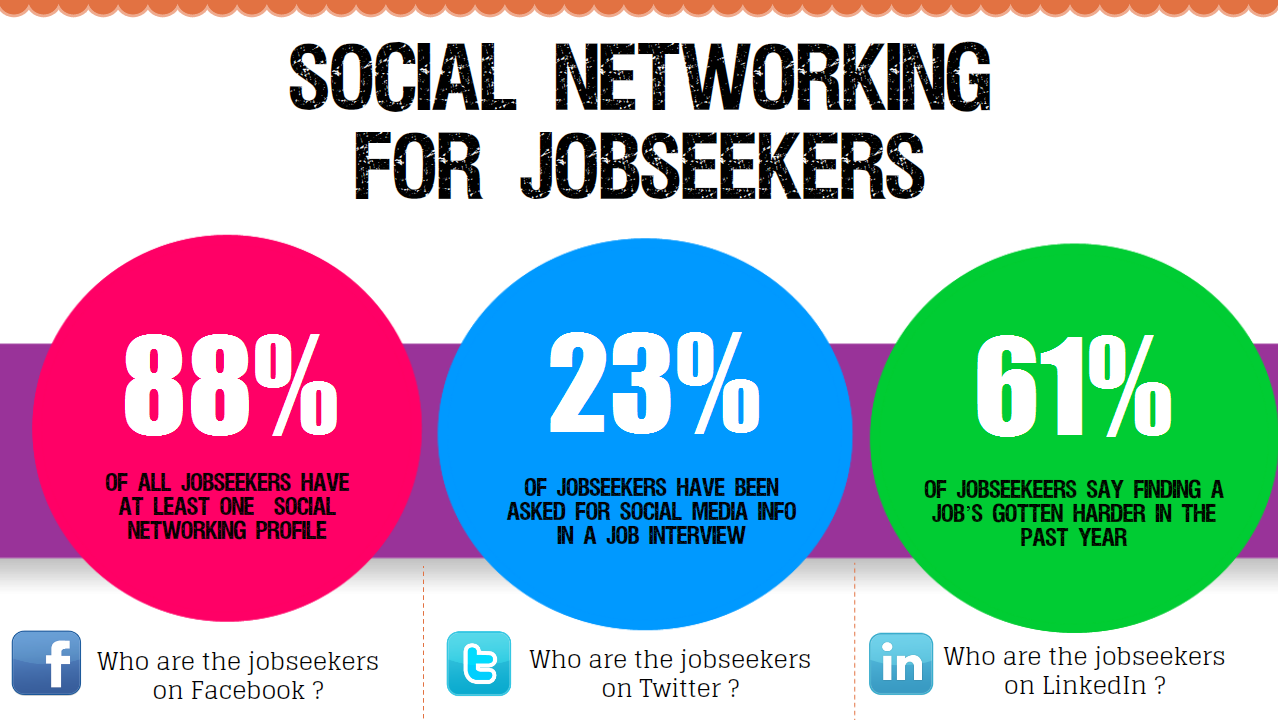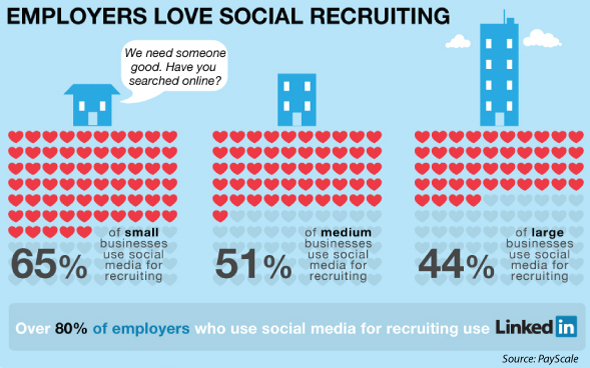Note: This is a personal writing and academic analysis and research of the definitions/answers of the questions have been taken into considerations accordingly and paraphrased and all the posters/illustrations have been referenced by Suhasini.
Text 1: 9 Myths About Social Media at Work
9 Myths About Social Media. Retrieved from Screen-Shot-2014-11-18-at-10.02.29-AM.png(1176×550) (tnwcdn.com)
Text 1 Reflection:
I chose this text as it challenges my assumptions of recruiters not using social media to the fullest for recruitment purposes. This text and the figures show how recruiters actually are planning to use social media at its best potential to hire great candidates while my assumptions were around 45-50% recruiters would consider using social media approach for hiring purposes as not many companies would reply on social media for recruitment. Also, I am very surprised to know that 30% of Google searches are related to employment which I personally believe that it shows there may be an issue or looking for better hopes in the employment industry. The fact that 51% of current employees are also looking open or looking for new job shows how one job might not be that rewarding or fruitful for many people. Further, recruiters finding 49% improvement in candidate quality through social media is surprising as many can change lie about their proficiencies but here it is not the case.
Text 2: Social Networking for Job Seekers
#INFOGRAPHIC – Spark Hire
Social Media Networking for Job Seekers.
Retrieved from https://hr.sparkhire.com/wp-content/uploads/2013/01/social-networking-for-jobseekers_50d388c75cab8-e1430841680964.png
Text 2 Reflection:
This infographic shows how not every jobseeker are on social media and 88% of them having at least one social media compared to the rest. This challenges my assumptions of jobseekers not being asked about their social media info during interview as I believe social media is more personal and the fact that 23% of jobseekers having being asked about their social media info show that some recruiters want to know about the Digital Footprint of the future employee through their socials. Also, this challenges my views on how through social media, it has become easier for jobseekers to find more jobs due to many companies having a social and online presence and yet 61% of jobseekers are finding it more difficult to find jobs since the past year.
Text 3: The Downside of Employees Using Social Media for Work
The Downside of Employees Using Social Media for Work. Retrieved from https://hbr.org/resources/images/article_assets/2018/05/W180420_BIZZI_THEDOWNSIDE.png
I chose this text as it shows the downside of employees using social media for work and it challenges my assumptions of employees using social media for a more professional approach at their workplace. Here it can be seen how employees are using social media for work more than leisure which is personally surprising as generally social media is more used during leisure time. Also, it challenges my assumptions of employees using social media for professional purposes as instead it can be clearly seen how these employees are using the socials to find interest and more about other organizations which indicates how they are unhappy at this current workplace. Also, my other assumption was socials can be a great networking tool for employees at workplace and instead of working, in this picture we can conclude that they are using the socials for new work connections which can be a great distraction for them during work hours leading to troubles.
Text 4: Employers Love Social Recruiting
Employers Love Social Recruiting. Retrieved from https://wwspi.com/wp-content/uploads/2012/07/Staffing-Insurance-Social-Media-Job-Hunt.jpg
This infographic shows about employers love social recruiting which challenges my assumptions of employers not loving social recruitment. Personally, I believed that not many employers love social recruiting as it is a new way of recruitment and some of them need to learn and adjust on this method of recruitment. However, this infographic challenged this assumption of mine and shows how 80% of the employers use LinkedIn for recruitment purposes which is easier. Also, how businesses are also using social media for recruiting and mostly small businesses which are smartly considering use of social media for a broader audience and applicants. This shows how using social media is beneficial for recruitment in businesses and for recruiters.
Final Reflection
The text that I have chosen for my portfolio challenge my assumptions of the role and effects of social media in the life of employers, employees, recruiters and jobseekers. Each of them represents the use of social media for recruiting purposes and consideration for finding jobs which is beneficial.
- Text 1 depicts many recruiters use social media for recruiting purposes and through that they found better quality candidates.
- Text 2 portrays how most of the job seekers are at least on one social media and some of them are asked about their social media info during interview which is a personal question and many jobseekers find it harder to find a job since the past year despite having easier access to social media.
- Text 3 depicts how using social media have negative impacts on workers who spend more time on social media during work hours and use them not for their given work related subjects which was very surprising to me.
- Text 4 challenges the perception of businesses and employers not loving and using social media for recruitment which is totally untrue.




Comments
Post a Comment